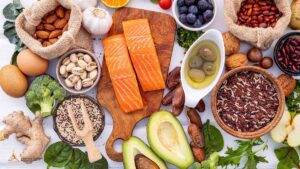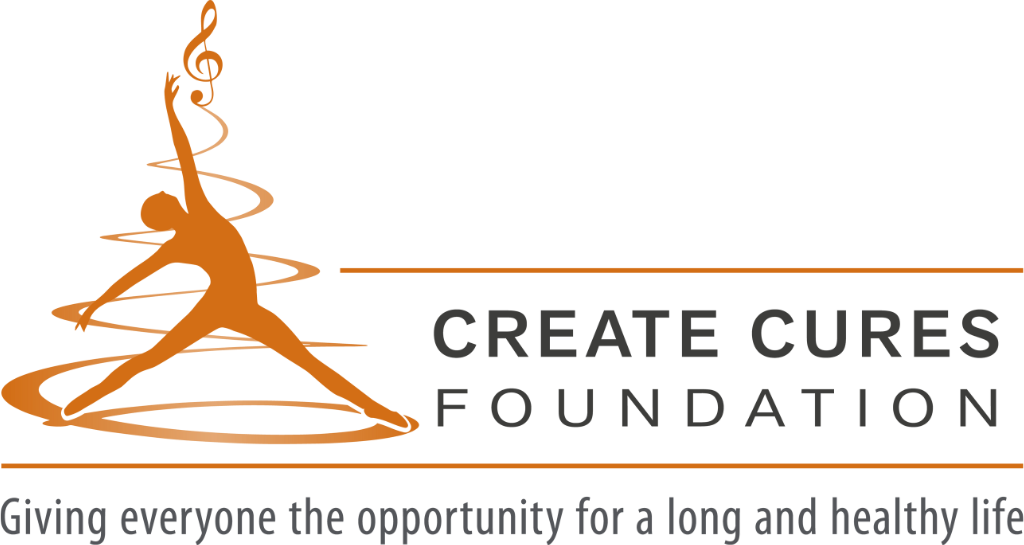Welcome to the Create Cures Foundation Clinic!
Leaders in Nutrition/Fasting Integration in therapies against Cancer and other diseases.
Based on the discovery made at leading research Institutes and hospitals around the world.
Thanks to a team of Registered Dietitians and Molecular biologists working with Physicians and Researchers trained at leading centers for longevity and age-related diseases, helps cancer patients combine standard-of-care treatment with nutrition and lifestyle-based intervention to optimize therapy.
We believe everyone deserves the opportunity to live a long and healthy life.

A Nutrition Professional Becomes a Patient
For patients seeking consultations to combine standard-of-care treatment with science-based nutrition.
The Scientific Team at the Create Cures Clinic includes leaders in the field of longevity and nutrition specialized in integrative approaches that apply science-based nutrition and fasting protocols to optimize longevity and prevent and manage major chronic diseases, including:
Cancer, Diabetes, Cardiovascular Disease, Obesity, Autoimmune Disease, Alzheimer’s Disease.
Personalized Care in Every Step of Your Journey
- When you choose the Create Cures Clinic, you choose a supportive team, and knowledgeable professionals dedicated to providing integrative care. We understand the importance of financial accessibility, offering a sliding-scale payment option for those in need.
- With a convenient clinic location, user-friendly digital health tools, and video visit options, we offer multiple avenues for first visits and communication. Discover our services to begin your personalized journey to well-being, guided by expertise, compassion, and a commitment to your long and healthy life.







Patient Journey
- Initial Evaluation: Patients undergo an initial assessment to determine their nutritional needs, medical history, and dietary habits.
- Customized Nutrition Plan: The clinic’s experts create a personalized nutrition plan tailored to the patient’s needs and dietary preferences, with consideration for the overall intervention strategy
- Patients attend regular follow-up to receive ongoing nutritional guidance and support.
The Create Cures Foundation Programs are designed for people who wish to receive 12-month integrative treatment involving personalized nutrition and lifestyle guidance to promote overall health and longevity. The Foundation team, who has been trained by Prof. Longo and follows his method, will identify and propose personalized innovative approaches to optimize healthspan, reduce disease risk, and support longevity.
- Patients receive education on the importance of nutrition in cancer cardiometabolic treatments, and other aged-related disease are empowered to make informed choices.
- Support groups or counseling services may be offered to address the emotional and psychological aspects of the cancer journey.
- Regularly monitoring the patient’s progress with adjustments to the integrative plan as needed.
- The clinic team ensures the integrative nutritional plan aligns with patients’ changing needs throughout care intervention.
- The clinic collaborates with the patient’s medical team to ensure seamless integration of nutritional support with the overall cancer treatment plan.
- This can involve collaborating with patient’s physicians, and other healthcare providers.
Patients are provided with:
- Personalized meal plans and fasting interventions aimed at helping therapies work better with less side effects
- Recommendation for tests to be performed
- Recipes
- Educational materials

Connect to Care With Digital Patient Portal
Video Visits
Consult the dietitian and molecular biologist via video visits on your computer or smartphone for convenient and personalized integrative nutritional guidance.
Patient Portal dedicated
Access to your medical information effortlessly online. Our patient portal enables you to schedule appointments, have video and in-person visits, message your care team, view health records, pay bills, and more.

Financial Assistance
Create Cures Foundation ensures that low-income individuals receive the support they need through a sliding fee program and financial assistance initiatives.
Patients can connect with our financial counselors to explore payment options, apply for aid, and alleviate any financial concerns associated with their care.
Disease and Conditions
The researchers on our team have dedicated their lives to researching nutritional interventions, including fasting and protein restriction, and ketogenic diets that can be safely combined with conventional oncology therapies to help reduce cancer risk and recurrence and improve the efficacy of treatment.
Our protocols aim to enhance the efficacy of cancer response to a variety of therapies while at the same time activating protective genes in the patient’s normal cells and tissues. Prof. Longo and many laboratory around the world have tested and are continuing to test the effects of these nutritional interventions in a series of clinical trials focused on a wide range of cancers and cancer treatments. The Foundation Clinical Team brings this knowledge to the patients as soon as it becomes available but only when it is considered by the Oncologist to be sufficiently safe and potentially effective to be implemented.
Preclinical studies suggested that nutrition deprivation enhances the antitumor activity of chemotherapy, immunotherapy, or targeted therapies in cancer models. Several clinical therapies have demonstrated that fasting and the fasting mimicking diet are feasible and well-tolerated in combination with standard therapies for cancer patients, reducing chemotherapy toxicities, side effects, and drug resistance acquisition.
References:
PRECLINICAL STUDIES:
Lee, Changhan et al. “Starvation, detoxification, and multidrug resistance in cancer therapy.” Drug resistance updates: reviews and commentaries in antimicrobial and anticancer chemotherapy vol. 15,1-2 (2012): 114-22. doi:10.1016/j.drup.2012.01.004
Lee, Changhan et al. “Fasting cycles retard growth of tumors and sensitize a range of cancer cell types to chemotherapy.” Science translational medicine vol. 4,124 (2012): 124ra27. doi:10.1126/scitranslmed.3003293
Balasubramanian, Priya, and Valter D Longo. “Aging, nutrient signaling, hematopoietic senescence, and cancer.” Critical reviews in oncogenesis vol. 18,6 (2013): 559-71. doi:10.1615/critrevoncog.2013010596
Fontana, Luigi et al. “Dietary protein restriction inhibits tumor growth in human xenograft models.” Oncotarget vol. 4,12 (2013): 2451-61. doi:10.18632/oncotarget.1586
Caffa, Irene et al. “Fasting potentiates the anticancer activity of tyrosine kinase inhibitors by strengthening MAPK signaling inhibition.” Oncotarget vol. 6,14 (2015): 11820-32. doi:10.18632/oncotarget.3689
Shim, Hong Seok et al. “Starvation promotes REV1 SUMOylation and p53-dependent sensitization of melanoma and breast cancer cells.” Cancer research vol. 75,6 (2015): 1056-67. doi:10.1158/0008-5472.CAN-14-2249
Brandhorst, Sebastian, and Valter D Longo. “Fasting and Caloric Restriction in Cancer Prevention and Treatment.” Recent results in cancer research. Fortschritte der Krebsforschung. Progres dans les recherches sur le cancer vol. 207 (2016): 241-66. doi:10.1007/978-3-319-42118-6_12
Di Biase, Stefano et al. “Fasting-Mimicking Diet Reduces HO-1 to Promote T Cell-Mediated Tumor Cytotoxicity.” Cancer cell vol. 30,1 (2016): 136-146. doi:10.1016/j.ccell.2016.06.005
Di Tano, Maira et al. “Synergistic effect of fasting-mimicking diet and vitamin C against KRAS mutated cancers.” Nature communications vol. 11,1 2332. 11 May. 2020, doi:10.1038/s41467-020-16243-3
Salvadori, Giulia et al. “Fasting-mimicking diet blocks triple-negative breast cancer and cancer stem cell escape.” Cell metabolism vol. 33,11 (2021): 2247-2259.e6. doi:10.1016/j.cmet.2021.10.008.
Cortellino, Salvatore et al. “Fasting renders immunotherapy effective against low-immunogenic breast cancer while reducing side effects.” Cell reports vol. 40,8 (2022): 111256. doi:10.1016/j.celrep.2022.111256
CLINICAL STUDIES:
Safdie, Fernando M et al. “Fasting and cancer treatment in humans: A case series report.” Aging vol. 1,12 988-1007. 31 Dec. 2009, doi:10.18632/aging.100114
de Groot, Stefanie et al. “The effects of short-term fasting on tolerance to (neo) adjuvant chemotherapy in HER2-negative breast cancer patients: a randomized pilot study.” BMC cancer vol. 15 652. 5 Oct. 2015, doi:10.1186/s12885-015-1663-5
Dorff, Tanya B et al. “Safety and feasibility of fasting in combination with platinum-based chemotherapy.” BMC cancer vol. 16 360. 10 Jun. 2016, doi:10.1186/s12885-016-2370-6
Bauersfeld, Stephan P et al. “The effects of short-term fasting on quality of life and tolerance to chemotherapy in patients with breast and ovarian cancer: a randomized cross-over pilot study.” BMC cancer vol. 18,1 476. 27 Apr. 2018, doi:10.1186/s12885-018-4353-2
de Groot, Stefanie et al. “Fasting mimicking diet as an adjunct to neoadjuvant chemotherapy for breast cancer in the multicentre randomized phase 2 DIRECT trial.” Nature communications vol. 11,1 3083. 23 Jun. 2020, doi:10.1038/s41467-020-16138-3
Caffa, Irene et al. “Author Correction: Fasting-mimicking diet and hormone therapy induce breast cancer regression.” Nature vol. 588,7839 (2020): E33. doi:10.1038/s41586-020-2957-6
Valdemarin, Francesca et al. “Safety and Feasibility of Fasting-Mimicking Diet and Effects on Nutritional Status and Circulating Metabolic and Inflammatory Factors in Cancer Patients Undergoing Active Treatment.” Cancers vol. 13,16 4013. 9 Aug. 2021, doi:10.3390/cancers13164013
Vernieri, Claudio et al. “Fasting-Mimicking Diet Is Safe and Reshapes Metabolism and Antitumor Immunity in Patients with Cancer.” Cancer discovery vol. 12,1 (2022): 90-107. doi:10.1158/2159-8290.CD-21-0030
Ligorio, Francesca et al. “Exceptional tumour responses to fasting-mimicking diet combined with standard anticancer therapies: A sub-analysis of the NCT03340935 trial.” European journal of cancer (Oxford, England : 1990) vol. 172 (2022): 300-310. doi:10.1016/j.ejca.2022.05.046
Our team specializes in diabetes management, providing a comprehensive approach that combines expertise, experience, and ongoing research to assist individuals with diabetes. Integration of nutrition and fasting programs into regular primary care for people with type 2 diabetes has shown promising results, including reduced reliance on glucose-lowering medication, improved HbA1c levels despite medication reduction, and appears to be safe in routine clinical practice.
In the context of diabetes, the fasting-mimicking diet was effective in treating both type 1 diabetes (an autoimmune diseases) and type 2 diabetes in mice. These studies demonstrate how fasting or fasting-mimicking diets can offer new perspectives in the treatment of diseases such as diabetes, through beneficial effects on health and longevity, allowing a reduction in body weight, improving control over the growth factor IGF-1, over blood sugar and over insulin.
Based on existing research studies, the fasting mimicking diet has shown effectiveness in lowering hyperglycemia, body mass index (BMI), blood pressure, and levels of IGF-1, all of which are risk factors linked to diabetes.
Multiple clinical trials on pre-diabetic and Type 2 Diabetic patients show that 3-12 cycles of a 5-day monthly fasting mimicking diet (FMDs) can reduce A1C and lead to 50-70% of patients to reduce drug use and undergo disease regression. At the CCF Clinic we personalize the use of dietary approaches for preventing and managing type 2 diabetes that are applicable to the general population.
At present, a clinical trial is being conducted at Leiden University Medical Center to examine the impacts of periodic applications of the fasting mimicking diet in individuals diagnosed with type 2 diabetes.
References: PRECLINICAL STUDIES
Brandhorst, S., Choi, I. Y., Wei, M., Cheng, C. W., Sedrakyan, S., Na-varrete, G., Dubeau, L., Yap, L. P., Park, R., Vinciguerra, M., Di Biase, S., Mirzaei, H., Mirisola, M. G., Childress, P., Ji, L., Groshen, S., Pen-na, F., Odetti, P., Perin, L., Conti, P. S., … Longo, V. D. (2015). A Pe-riodic Diet that Mimics Fasting Promotes Multi-System Regeneration, Enhanced Cognitive Performance, and Healthspan. Cell metabolism, 22(1), 86–99. https://doi.org/10.1016/j.cmet.2015.05.012
Cheng, C. W., Villani, V., Buono, R., Wei, M., Kumar, S., Yilmaz, O. H., Cohen, P., Sneddon, J. B., Perin, L., & Longo, V. D. (2017). Fasting-Mimicking Diet Promotes Ngn3-Driven β-Cell Regeneration to Rever-se Diabetes. Cell, 168(5), 775–788.e12. https://doi.org/10.1016/j.cell.2017.01.040
CLINICAL STUDIES
Wei, M., Brandhorst, S., Shelehchi, M., Mirzaei, H., Cheng, C. W., Budniak, J., Groshen, S., Mack, W. J., Guen, E., Di Biase, S., Cohen, P., Morgan, T. E., Dorff, T., Hong, K., Michalsen, A., Laviano, A., & Longo, V. D. (2017). Fasting-mimicking diet and markers/risk fac-tors for aging, diabetes, cancer, and cardiovascular disease. Science translational medicine, 9(377), eaai8700. https://doi.org/10.1126/scitranslmed.aai8700
Guevara-Aguirre, J., Balasubramanian, P., Guevara-Aguirre, M., Wei, M., Madia, F., Cheng, C. W., Hwang, D., Martin-Montalvo, A., Saave-dra, J., Ingles, S., de Cabo, R., Cohen, P., & Longo, V. D. (2011). Growth hormone receptor defi ciency is associated with a major reduction in pro-aging signaling, cancer, and diabetes in humans. Science tran-slational medicine, 3(70), 70ra13. https://doi.org/10.1126/scitran-slmed.3001845
van den Burg, E. L., Schoonakker, M. P., van Peet, P. G., van den Akker-van Marle, M. E., Willems van Dijk, K., Longo, V. D., Lamb, H. J., Numans, M. E., & Pijl, H. (2020). Fasting in diabetes treatment (FIT) trial: study protocol for a randomised, controlled, assessor-blin-ded intervention trial on the effects of intermittent use of a fasting-mi-micking diet in patients with type 2 diabetes. BMC endocrine disor-ders, 20(1), 94. https://doi.org/10.1186/s12902-020-00576-7
Sulaj, et al. (2022). Six-Month Periodic Fasting in Patients With Type 2 Diabetes and Diabetic Nephropathy: A Proof-of-Concept Study. The Journal of Clinical Endocrinology & Metabolism, 107, 2167–2181. https://doi.org/10.1210/clinem/dgac197
Brandhorst, Sebastian et al. “Fasting-mimicking diet causes hepatic and blood markers changes indicating reduced biological age and disease risk.” Nature communications vol. 15,1 1309. 20 Feb. 2024, doi:10.1038/s41467-024-45260-9
van den Burg, Elske L et al. “Integration of a fasting-mimicking diet programme in primary care for type 2 diabetes reduces the need for medication and improves glycaemic control: a 12-month randomised controlled trial.” Diabetologia, 10.1007/s00125-024-06137-0. 28 Mar. 2024, doi:10.1007/s00125-024-06137-0
Obesity and overweight, constantly increasing at a global level, represent a serious risk factor for other medical conditions. However, through customized nutrition and targeted fasting, obesity and its related risk factors can be addressed, promoting better cardiometabolic health and helping to extend the length of time you live in good health.
The fasting-mimicking diet, characterized by low impact, long-term adherence, and proven safety, emerge as a valuable tool in the fight against obesity and related diseases, offering the prospect of a longer and healthier life.
For instance, after 3 monthly cycles of the fasting mimicking diet (fmd), individuals have been shown to lose, on average, 5.7 lbs of body weight and 1.6 inches in waist circumference. Moreover, cycles of the fasting mimicking diet seem to have a beneficial impact on leptin levels, which can regulate appetite and enhance the function of visceral adipose tissue, leading to improved metabolic efficiency.
References: PRECLINICAL STUDIES
Brandhorst, S., Choi, I. Y., Wei, M., Cheng, C. W., Sedrakyan, S., Na-varrete, G., Dubeau, L., Yap, L. P., Park, R., Vinciguerra, M., Di Biase, S., Mirzaei, H., Mirisola, M. G., Childress, P., Ji, L., Groshen, S., Pen-na, F., Odetti, P., Perin, L., Conti, P. S., … Longo, V. D. (2015). A Pe-riodic Diet that Mimics Fasting Promotes Multi-System Regeneration, Enhanced Cognitive Performance, and Healthspan. Cell metabolism, 22(1), 86–99. https://doi.org/10.1016/j.cmet.2015.05.012
CLINICAL STUDIES/REVIEWS
Wei, M., Brandhorst, S., Shelehchi, M., Mirzaei, H., Cheng, C. W., Budniak, J., Groshen, S., Mack, W. J., Guen, E., Di Biase, S., Cohen, P., Morgan, T. E., Dorff, T., Hong, K., Michalsen, A., Laviano, A., & Longo, V. D. (2017). Fasting-mimicking diet and markers/risk fac-tors for aging, diabetes, cancer, and cardiovascular disease. Science translational medicine, 9(377), eaai8700. https://doi.org/10.1126/scitranslmed.aai8700
Fanti, Maura et al. “Time-Restricted Eating, Intermittent Fasting, and Fasting-Mimicking Diets in Weight Loss.” Current obesity reports vol. 10,2 (2021): 70-80. doi:10.1007/s13679-021-00424-2
Brandhorst, Sebastian et al. “Fasting-mimicking diet causes hepatic and blood markers changes indicating reduced biological age and disease risk.” Nature communications vol. 15,1 1309. 20 Feb. 2024, doi:10.1038/s41467-024-45260-9
Mishra, Amrendra, and Valter D Longo. “Fasting and Fasting Mimicking Diets in Obesity and Cardiometabolic Disease Prevention and Treatment.” Physical medicine and rehabilitation clinics of North America vol. 33,3 (2022): 699-717. doi:10.1016/j.pmr.2022.04.009
Cardiovascular diseases encompass a variety of conditions affecting the heart and blood vessels, with significant impacts on health and quality of life.
When examining the impacts of customized nutrition and fasting, a set of tests carried out on mice that were fed a high fat diet to produce adverse conditions for heart and cardiovascular health showed significant enhancements.
These enhancements encompass improved heart function, heightened blood vessel density in the heart, and a decrease in the size of the left ventricle, which typically expands with a high fat diet which can indicate that the heart is working harder to pump blood.
At a clinical level, research suggests that fmd may have beneficial effects on factors such as blood pressure, cholesterol levels, and inflammation, which are closely linked to cardiovascular health. By promoting metabolic changes and cellular repair processes, fmd may contribute to improved cardiovascular function and reduced risk of cardiovascular diseases.
In a crossover, randomized clinical trial, participants undergoing 3 monthly cycles of the fasting mimicking diet (fmd), had, on average, a decrease in IGF-1 by 21.7 ng/ml, systolic blood pressure by 4.5 mmHg, diastolic blood pressure by 3.1 mmHg, triglycerides by 8.1 mg/dl, total cholesterol by 10.9 mg/dl, and LDL cholesterol by 4.4 mg/dl.
References
PRECLINICAL STUDIES
Brandhorst, S., Choi, I. Y., Wei, M., Cheng, C. W., Sedrakyan, S., Na-varrete, G., Dubeau, L., Yap, L. P., Park, R., Vinciguerra, M., Di Biase, S., Mirzaei, H., Mirisola, M. G., Childress, P., Ji, L., Groshen, S., Pen-na, F., Odetti, P., Perin, L., Conti, P. S., … Longo, V. D. (2015). A Pe-riodic Diet that Mimics Fasting Promotes Multi-System Regeneration, Enhanced Cognitive Performance, and Healthspan. Cell metabolism, 22(1), 86–99. https://doi.org/10.1016/j.cmet.2015.05.012
CLINICAL STUDIES/REVIEWS
Wei, M., Brandhorst, S., Shelehchi, M., Mirzaei, H., Cheng, C. W., Budniak, J., Groshen, S., Mack, W. J., Guen, E., Di Biase, S., Cohen, P., Morgan, T. E., Dorff, T., Hong, K., Michalsen, A., Laviano, A., & Longo, V. D. (2017). Fasting-mimicking diet and markers/risk fac-tors for aging, diabetes, cancer, and cardiovascular disease. Science translational medicine, 9(377), eaai8700. https://doi.org/10.1126/scitranslmed.aai8700
Fanti, Maura et al. “Time-Restricted Eating, Intermittent Fasting, and Fasting-Mimicking Diets in Weight Loss.” Current obesity reports vol. 10,2 (2021): 70-80. doi:10.1007/s13679-021-00424-2
Brandhorst, Sebastian et al. “Fasting-mimicking diet causes hepatic and blood markers changes indicating reduced biological age and disease risk.” Nature communications vol. 15,1 1309. 20 Feb. 2024, doi:10.1038/s41467-024-45260-9
Mishra, Amrendra et al. “Fasting-mimicking diet prevents high-fat diet effect on cardiometabolic risk and lifespan.” Nature metabolism vol. 3,10 (2021): 1342-1356. doi:10.1038/s42255-021-00469-6
Mishra, Amrendra, and Valter D Longo. “Fasting and Fasting Mimicking Diets in Obesity and Cardiometabolic Disease Prevention and Treatment.” Physical medicine and rehabilitation clinics of North America vol. 33,3 (2022): 699-717. doi:10.1016/j.pmr.2022.04.009
Aging often brings changes to the immune system, which can lead to inflammation and increase the risk of autoimmune diseases.
Immune cells, such as T lymphocytes, macrophages, and neutrophils, produce cytokines like TNF-alpha and IL-6, which coordinate immune functions like fighting infections and eliminating damaged cells. However, with age and certain diseases, these cytokines can become dysregulated, leading to chronic inflammation throughout the body. This systemic inflammation can contribute to autoimmune diseases like multiple sclerosis, type 1 diabetes, inflammatory bowel diseases, as well as non-immunological diseases such as cancer and cardiovascular disease.
Measurement of C-reactive protein (CRP) levels in the blood can help assess systemic inflammation, as CRP is produced by the liver in response to inflammation or infection.
In experimental Multiple Sclerosis mice model, 3 cycles of 3-day fasting mimicking diet, compared to a 30-day ketogenic diet reduced the severity of the disease, and symptoms were completely reversed in 20% of mice.
In the same study, the findings were documented to confirm the safety and viability of the fasting mimicking diet and ketogenic diet in patients with relapsing-remitting multiple sclerosis. The dietary treatments were well received and did not result in any major issues. Individuals who adhered to the fasting mimicking diet and those who followed a ketogenic diet experienced enhancements in their quality of life, such as decrease in daily discomforting symptoms. Positive outcomes noted included decreased inflammation, enhanced cognitive function, reduced hunger sensations and heightened energy levels.
In type-1 mice models, fasting-mimicking diet temporarily reduces the number of beta cells in the pancreas, followed by their regeneration during the refeeding phase. Through six to eight cycles of fasting-mimicking diet and refeeding, non-active beta cells were eliminated and replaced with new functioning beta cells capable of producing insulin. This restoration of insulin led to blood glucose levels returning to nearly normal levels. Further experimental insights indicated that the fasting-mimicking diet could modify gene expression, suppressing beta cell generation in type 1 diabetes, thus restoring the production of insulin-producing cells in the pancreas.
Moreover, fasting-mimicking diet cycles reduced intestinal inflammation, increased stem cell numbers, stimulated protective gut microbiota, and reversed intestinal pathology in inflammatory bowel diseases mice models.
References PRECLINICAL STUDIES
Cheng, C. W., Villani, V., Buono, R., Wei, M., Kumar, S., Yilmaz, O. H., Cohen, P., Sneddon, J. B., Perin, L., & Longo, V. D. (2017). Fasting-Mimicking Diet Promotes Ngn3-Driven β-Cell Regeneration to Rever-se Diabetes. Cell, 168(5), 775–788.e12. https://doi.org/10.1016/j.cell.2017.01.040
Choi, In Young et al. “Nutrition and fasting mimicking diets in the prevention and treatment of autoimmune diseases and immunosenescence.” Molecular and cellular endocrinology vol. 455 (2017): 4-12. doi:10.1016/j.mce.2017.01.042
Rangan, Priya et al. “Fasting-Mimicking Diet Modulates Microbiota and Promotes Intestinal Regeneration to Reduce Inflammatory Bowel Disease Pathology.” Cell reports vol. 26,10 (2019): 2704-2719.e6. doi:10.1016/j.celrep.2019.02.019
CLINICAL STUDIES
Choi, In Young et al. “A Diet Mimicking Fasting Promotes Regeneration and Reduces Autoimmunity and Multiple Sclerosis Symptoms.” Cell reports vol. 15,10 (2016): 2136-2146. doi:10.1016/j.celrep.2016.05.009
Research on the brain and neurodegenerative disorders has consistently garnered significant interest in relation to the aging process, making it a major challenge for the scientific community.
Of all the neurovegetative diseases, Alzheimer’s and Parkinson’s disease are unquestionably the most prevalent, each displaying distinct clinical features. There is currently no definitive cure for the majority of neurodegenerative diseases.
Nutrition plays a crucial role in the prevention and management of these diseases, making researching in this field essential.
Fasting and the fasting mimicking diets are emerging as a potential approach to improve brain health and combat neurodegenerative diseases.
Studies in mice have shown that these dietary regimens can lead to improvements in memory, learning, and even a reduction in brain pathologies associated with disease such as Alzheimer’s and Parkinson’s disease.
References PRECLINICAL STUDIES
Parrella, Edoardo, and Valter D Longo. “Insulin/IGF-I and related signaling pathways regulate aging in nondividing cells: from yeast to the mammalian brain.” TheScientificWorldJournal vol. 10 161-77. 21 Jan. 2010, doi:10.1100/tsw.2010.8
Parrella, Edoardo et al. “Protein restriction cycles reduce IGF-1 and phosphorylated Tau, and improve behavioral performance in an Alzheimer’s disease mouse model.” Aging cellvol. 12,2 (2013): 257-68. doi:10.1111/acel.12049
Brandhorst, et al. (2015). A periodic diet that mimics fasting promotes Multi-System Regeneration, Enhanced Cognitive Performance, and Healthspan. Cell metabolism, 22(1), 86–99. https://doi.org/10.1016/j.cmet.2015.05.012
For Those Interested in Healthy Longevity
Obesity and smoking are major risk factors for cancer, Alzheimer’s and cardiovascular diseases, yet their impact on these diseases almost disappears when compared to 30 years of aging. Thus, delayed aging and possibly rejuvenation are by far the most important factors in keeping people healthy and achieving longevity. The CCF Clinic, founded by one of the leading experts in the aging field, specializes in nutrition and lifestyle-based interventions to optimize the ability to live long and healthy.
Personalized nutrition and fasting can potentially lead to rejuvenate the immune system and biological age.
In our Longevity Programs, we will perform a series of blood, imaging and function tests but also measure biological aging to establish the starting point and identify the best personalized interventions that will lower biological age and increase multi-system function.
Additional reference:
Brandhorst, Sebastian et al. “Fasting-mimicking diet causes hepatic and blood markers changes indicating reduced biological age and disease risk.” Nature communications vol. 15,1 1309. 20 Feb. 2024, doi:10.1038/s41467-024-45260-9

Create Cures Foundation
The Founder
Valter Longo is a Professor of Biogerontology and Director of the Longevity Institute of the USC (University of Southern California) School of Gerontology in Los Angeles, one of the most important centers for research on aging and age-related diseases. Professor Longo is also the director of the Longevity and Cancer research program at the IFOM Institute of Molecular Oncology in Milan, Italy.
In 2018, Prof. Longo was named by “Time Magazine” as one of the 50 most influential people in the world in the healthcare field.
Our treatment protocols are based on Professor Longo’s five-pillar system and clinical studies
Prof. Valter Longo, PhD
Meet Our Team
Create Cures Foundation Clinic

Registered Dietitian Nutritionist
Jessica Harrison, a Registered Dietitian Nutritionist with the Create Cures Foundation, received her Master’s in Nutrition, Healthspan, and Longevity from the University of Southern California (USC).
Jessica is continuing her education through the Institute of Functional Medicine to deepen her understanding of how addressing the root cause of illness can therapeutically treat pathological disease states and promote optimal health. She is also a certified Pilates instructor and considers movement an integral part of taking a whole-person approach with each patient.

Registered Dietitian Nutritionist
Katie Reines, a Registered Dietitian Nutritionist with the Create Cures Foundation Clinic, obtained her Bachelor of Science degree in Dietetics, Nutrition, Fitness, and Health from Purdue University and a Master of Science degree in Human Nutrition from Texas A&M University. She also completed a Dietetic Program, which was approved by the Commission of Dietetic Registration at Texas A&M University. She has been plant-based for over ten years and wrote her master’s thesis on plant-based nutrition and cancer.
Katie is also a certified plant-based chef and provides educational cooking classes and food demonstrations for many audiences. She is also a food freedom and body image coach and helps young women transition to a plant-based lifestyle focusing on empowerment and health-promoting behaviors rather than weight. Katie also enjoys teaching yoga and dance classes and incorporates mindset and holistic health into each consultation.

Molecular Biologist | Chief Scientific Officer
Romina Inés Cervigni is a Nutritionist Biologist of the Valter Longo Foundation and Create Cures Foundation with over ten years of experience in scientific research, having dealt with the study of the pathological mechanisms underlying cancer, autoimmune, genetic and neurological diseases.
Romina obtained her master’s degree in Biology from the University of Camerino and a Ph.D. in Life and Biomolecular Sciences from the Open University in the United Kingdom, focusing her attention on the cellular and molecular mechanisms of cancer cells, through basic biology research. She has collaborated as a postdoctoral researcher with the National Research Committee in Naples and the Vita-Salute San Raffaele University in Milan, dealing with neuroscience.
Her professional career continues at the Polytechnic University of Marche by completing a second-level Master’s in Nutrition and Dietetics. This allows her to combine the preparation and knowledge acquired during the previous years in the different pathological areas to optimize people’s health through nutrition. Together with the team of the foundations, she assists patients suffering from various pathologies from all over the world, helping them to integrate dietary therapy with standard pharmacological treatments, by translating evidence-based data into individualized dietary indications.


Shayna Feinerman, a Registered Dietitian Nutritionist with the Create Cures Foundation, holds a Master’s degree in Nutrition, Healthspan, and Longevity from the University of Southern California (USC). At USC’s Norris Cancer Center, she received specialized training in oncology nutrition and completed her master’s capstone on vitamin D supplementation for hematopoietic stem cell transplant patients. With a keen interest in longevity nutrition, Shayna has also studied under Dr. Valter Longo at the University of Genoa. Outside of her professional life, she enjoys surfing, traveling, yoga, and cooking healthy meals. Shayna is dedicated to treating her patients through a holistic approach that focuses on addressing the root causes of illness.
Collaborators
Scientific Consultant
Professor Sebastian Brandhorst’s scientific training is based on a background in cell biology, molecular biology, medicine, and biochemistry, all of which are highly relevant for his focus on biogerontology research to identify the mechanisms underlying cellular protection, as well as health- and lifespan-regulation, and their translation into clinical applications. Dr. Brandhorst’s studies are focused on the application of short-term starvation, low-calorie and/or low-protein diets, and so-called fasting-mimicking diets, on health and lifespan in pre-clinical and their translation into clinical studies. Dr. Brandhorst is a Professor at the Davies School of Gerontology at the University of Southern California (USC) in Los Angeles, California.Jessica is continuing her education through the Institute of Functional Medicine to deepen her understanding of how addressing the root cause of illness can therapeutically treat pathological disease states and promote optimal health. She is also a certified Pilates instructor and considers movement as an integral part of taking a whole-person approach with each patient.

Registered Dietitian Nutritionist, Volunteer Health Educator Coordinator
Frida Hovik, a Registered Dietitian Nutritionist with the Create Cures Foundation Clinic, received her BS degree in Nutritional Science and her MS degree in Nutrition, Healthspan and Longevity from the University of Southern California (USC). She is currently pursuing a Ph.D. in Clinical Nutrition. She is fascinated by applying nutrition research into practice to prevent and reduce symptoms associated with chronic diseases. Frida is the Newsletter Editor for California Academy Nutrition and Dietetics (CAND)-Orange District.
Create Cures Foundation Clinic
Personalized Care
Tailored nutrition/fasting-based tailored to each patient's needs.
Specialized Programs
Offering 12-month programs to address long-term the specific health needs and enrich the overall patient experience
Leader in Integrative Approaches
Pioneering science-based nutrition and fasting protocols led by experts in longevity, health and nutrition.
Compassionate Support Through Every Step
Expert nutritional guidance and compassionate support, including financial counseling
Digital Health Convenience
Easy access to medical information through our patient portal and digital solutions for streamlined healthcare.
Financial Assistance
Ensuring quality care accessibility through a sliding fee program and financial aid initiatives
Every Year our Clinics in
the US and Europe
Every year, our Clinics in Europe
and the USA have over 4,000 visits



About us

 Joe B2024-09-12
Joe B2024-09-12 I have worked with Katie Reines at Create Cures for one year and will continue for a second year. Perhaps that is the strongest recommendation I could make by wanting to continue with her and Create Cures.i am elderly with a serious illness and have no time to waste. She is knowledgeable, patient and very supportive. She is generous when explaining how to achieve goals and listens carefully to understand my limitations. I recommend working with her and have no reservations in doing so.
I have worked with Katie Reines at Create Cures for one year and will continue for a second year. Perhaps that is the strongest recommendation I could make by wanting to continue with her and Create Cures.i am elderly with a serious illness and have no time to waste. She is knowledgeable, patient and very supportive. She is generous when explaining how to achieve goals and listens carefully to understand my limitations. I recommend working with her and have no reservations in doing so.
 SMS K2024-07-16
SMS K2024-07-16 The Create Cures Foundation program has been utterly transformative--an essential component of my cancer treatment! Because of the program and tools it provides, my diet has improved ten-fold. Katie Reines, my CCF nutritionist, has been with me every step of the way--she's deeply knowledgeable, not only of nutrition generally, but specifically how nutrition affects cancer, and she motivates me and cheers me on and makes herself available to answer my many questions. Because of CCF and Katie, I've increased my nutrient intake significantly, and I'm much more aware of my food choices and what I can add to meals to make them more nutrient dense. I unreservedly recommend the Create Cures Foundation to anyone, especially those who are tackling a disease.
The Create Cures Foundation program has been utterly transformative--an essential component of my cancer treatment! Because of the program and tools it provides, my diet has improved ten-fold. Katie Reines, my CCF nutritionist, has been with me every step of the way--she's deeply knowledgeable, not only of nutrition generally, but specifically how nutrition affects cancer, and she motivates me and cheers me on and makes herself available to answer my many questions. Because of CCF and Katie, I've increased my nutrient intake significantly, and I'm much more aware of my food choices and what I can add to meals to make them more nutrient dense. I unreservedly recommend the Create Cures Foundation to anyone, especially those who are tackling a disease.
 Mariah Raftree2024-04-11
Mariah Raftree2024-04-11 I found Create Cures about the same time I started chemo and wanted some additional support. I’ve always been interested in diet and have worked with several different nutritionist over the years and have never been very impressed. My experience with Jessica at Create Cures was completely different. She blew me away in my first appointment. She listened and validated my concerns, she felt nourishing and she had super helpful suggestions. I felt like a statistic with all my other providers. Jessica made me feel like a person. She was my go to trusted advisor through all my treatments. She reviewed all my labs and got me through chemo with incredibly helpful suggestions for my body AND mind. I am so thankful for this organization and for the opportunity to connect with the best nutritionist ever. She truly helped me survive and get back on the path of thriving again.
I found Create Cures about the same time I started chemo and wanted some additional support. I’ve always been interested in diet and have worked with several different nutritionist over the years and have never been very impressed. My experience with Jessica at Create Cures was completely different. She blew me away in my first appointment. She listened and validated my concerns, she felt nourishing and she had super helpful suggestions. I felt like a statistic with all my other providers. Jessica made me feel like a person. She was my go to trusted advisor through all my treatments. She reviewed all my labs and got me through chemo with incredibly helpful suggestions for my body AND mind. I am so thankful for this organization and for the opportunity to connect with the best nutritionist ever. She truly helped me survive and get back on the path of thriving again.
 michelle hall2024-01-05
michelle hall2024-01-05 I was encouraged to connect with this foundation by a family member who works with Prolon. As a cancer patient, I wanted to make lifestyle changes that would enhance my treatment and keep me from having recurrence. I've been working with nutritionist Katie Reines and have learned so much about eating and exercising in a sustainable, informed and balanced way that focuses on feeling empowered and not deprived. I'm really grateful for the coaching, and evidence / research based information I am receiving. It is making my healing journey a way of life that is sure to bring me out of this season a stronger, much healthier person. I am very grateful for Create Cures and my wonderful guide Katie.
I was encouraged to connect with this foundation by a family member who works with Prolon. As a cancer patient, I wanted to make lifestyle changes that would enhance my treatment and keep me from having recurrence. I've been working with nutritionist Katie Reines and have learned so much about eating and exercising in a sustainable, informed and balanced way that focuses on feeling empowered and not deprived. I'm really grateful for the coaching, and evidence / research based information I am receiving. It is making my healing journey a way of life that is sure to bring me out of this season a stronger, much healthier person. I am very grateful for Create Cures and my wonderful guide Katie.
 Gina2024-01-04
Gina2024-01-04 I considered myself an informed nutrition geek and thought I was following a healthy diet that just needed minor tweaks. I soon found out there were several issues with the high protein Mediterranean-ish path I was taking and the CC Foundation pivoted me toward a more food-is-medicine approach which was what I really needed post cancer diagnosis. They also clarified and educated me on some of the more confusing and debated topics in the nutrition and longevity space like what supplements to take, how to balance macro nutrients, and which of the many fasting protocols out there are safe and optimal. Their direction was even tailored for the genetic profile of my specific cancer. Katie Reines, my assigned nutritionist was amazing and worked with me hand in hand through my diet course correction, detailed protocols, and literature clarifications. I am confident together we are reducing the odds of recurrence. Other surprise benefits of working with Katie and the team: - Dramatic increase in energy levels. - Losing the 10 lbs I’ve been trying to get rid of years without feeling like I made any real sacrifice. - Greater metabolic flexibility. No more blood sugar crashes. - More muscle mass (even while reducing animal protein to just fish 3x/week!) I strongly recommend CCF to anyone with a cancer condition as a powerful complement to their existing oncology standard of care.
I considered myself an informed nutrition geek and thought I was following a healthy diet that just needed minor tweaks. I soon found out there were several issues with the high protein Mediterranean-ish path I was taking and the CC Foundation pivoted me toward a more food-is-medicine approach which was what I really needed post cancer diagnosis. They also clarified and educated me on some of the more confusing and debated topics in the nutrition and longevity space like what supplements to take, how to balance macro nutrients, and which of the many fasting protocols out there are safe and optimal. Their direction was even tailored for the genetic profile of my specific cancer. Katie Reines, my assigned nutritionist was amazing and worked with me hand in hand through my diet course correction, detailed protocols, and literature clarifications. I am confident together we are reducing the odds of recurrence. Other surprise benefits of working with Katie and the team: - Dramatic increase in energy levels. - Losing the 10 lbs I’ve been trying to get rid of years without feeling like I made any real sacrifice. - Greater metabolic flexibility. No more blood sugar crashes. - More muscle mass (even while reducing animal protein to just fish 3x/week!) I strongly recommend CCF to anyone with a cancer condition as a powerful complement to their existing oncology standard of care.
 Rose Berk2023-10-28
Rose Berk2023-10-28 Katie Reines really helped me step up my "health" game!! I gained knowledge about general health subjects and subjects specific to me. I have tools and knowledge to support my success on the longevity path.
Katie Reines really helped me step up my "health" game!! I gained knowledge about general health subjects and subjects specific to me. I have tools and knowledge to support my success on the longevity path.
 Lisa Brisse2022-11-04
Lisa Brisse2022-11-04 I love Kimberly, the dietitian I’ve been working with in dealing with cancer. So grateful to have found this place!
I love Kimberly, the dietitian I’ve been working with in dealing with cancer. So grateful to have found this place!
 Gayle M2022-11-03
Gayle M2022-11-03 As a Registered Nurse, retired now for 20 years, with some of the typical health issues of aging in our society, I've been trying for years to find a dietician with a profound scientific base of knowledge as well as the compassion and communication skills to help me help myself with good eating practices. I'd been totally frustrated in this search until I came to be a patient/client of Kimberly Jacobson at Create Cures Foundation. I'd heard Valter Longo interviewed by Rich Roll on his podcast and was deeply impressed with his knowledge and approach, and also the idea of living not only with longevity but with health and vitality. I went to their website and called. I've been working with Kimberly for a few months now and have been helped enormously. Making dietary changes when it means going against the mainstream way of eating is SO NOT easy. First there is the knowledge component, but also, importantly, the emotional aspect. Even though I already knew quite a bit, I still find that there is so much more to learn and understand about diet and how MY body works, and how I can be my own best support. I'm endlessly grateful for the excellent guidance and support I've been getting.
As a Registered Nurse, retired now for 20 years, with some of the typical health issues of aging in our society, I've been trying for years to find a dietician with a profound scientific base of knowledge as well as the compassion and communication skills to help me help myself with good eating practices. I'd been totally frustrated in this search until I came to be a patient/client of Kimberly Jacobson at Create Cures Foundation. I'd heard Valter Longo interviewed by Rich Roll on his podcast and was deeply impressed with his knowledge and approach, and also the idea of living not only with longevity but with health and vitality. I went to their website and called. I've been working with Kimberly for a few months now and have been helped enormously. Making dietary changes when it means going against the mainstream way of eating is SO NOT easy. First there is the knowledge component, but also, importantly, the emotional aspect. Even though I already knew quite a bit, I still find that there is so much more to learn and understand about diet and how MY body works, and how I can be my own best support. I'm endlessly grateful for the excellent guidance and support I've been getting.
Contact Information

Create Cures Foundation Clinic
1260 15th St Ste PH, Santa Monica, CA 90404
www.createcures.org
Clinic@createcures.org
+1 424 785 9099
Fondazione Valter Longo (International Patient)
Via Borgogna, 9, 20122 Milano MI, Italy







Frequently Questions
Here is a list of the questions we are asked most frequently.
The Create Cures Foundation Programs are designed for people who wish to receive long-term integrative treatment involving personalized nutrition and lifestyle support to complement standard of care therapy. The Foundation team, who has been trained by Prof. Longo and follows his method, will identify and propose innovative integrative approaches, as well as clinics and services, to help enhance therapy.
Click on Appointment, clinic.createcures.org there you will be able to send the appointmnet request. Our team will contact you,send the intake forms, and scheudle the visit.
We provide the superbill that you may submit to your insurance company for potential reimbursement. Not all insurances cover all conditions. We offer reasonable self-pay options.
Create Cures Foundation will see all patients regardless of the ability to pay. We offer a sliding fee discount based on family size and income.
We offer both in-person and virtual nutrition counseling sessions.
In your first consultation with your Dietitian you can expect to have an in-depth discussion of your medical, social and family history, previous diets and their outcomes, define goals and expectations. Your Dietitian will help develop strategies to accomplish those goals. In subsequent visits, you will review and discuss with your dietitian accomplishments and well as challenges since your last visit and redesign some of the original strategies developed for you. Your dietitian will be assisting you throughout the way to help you achieve your goals for a better health.
Definitely! At Create Cures we make it clear from the get go that the health promoting behaviors and goals we set together are empowering and sustainable. We talk about your headspace and ensure that you are holistically healthy. Mentally and physically. It is important to recognize that the mind is part of the body, and decreasing stress and overwhelm is part of what we do here! No need to obsess, one step at a time with long term goals that include peace of mind, and a healthy mindset.
Once you have requested the first appointment and gained access to the Patient Portal, you can easily message a member of your care team through the “Messages” tab. While in your message inbox, you can send a new message, attach images, lab results, and view your care team’s replies.
Cancellation policies vary depending on the type of event and the agreed-upon contractual conditions. Please contact us for more information regarding the cancellation policy for your specific corporate event.
We are a team of registered dietitians and a molecular biologist, PhD. We meet on an ongoign basis to discuss cases and recent research to provide integrative and progressive recommendations.
Yes, our nutrition team is available and ready to help you with convenient Telehealth Nutrition Consultation in the comfort of your home.
A patient portal is a personalized, secure website that enables you to manage healthcare interactions and communicate with your healthcare providers at any time. A patient portal offers several benefits. You can bypass your practice’s call center to manage appointments and directly communicate with your healthcare team. You can also view your health records, access visit summaries, and other documentation. Create Cures Foundation offers online bill pay; you will be able to manage bills through your portal as well.
We combine data from your input on our professional online nutrient analysis account, as well as a body composition InBody scan showing muscle vs fat mass, and blood values like IGF1 and average blood sugar. Tracking these over time allows us to adjust recommendations accordingly to ensure continued optimization and longevity.
Yes, definitely. A lot of Dr. Longo’s research with the fasting mimicking diet and the longevity diet has shown signficant benefit and we work with a lot of different types of cancer patients. It is still important to meet with us and see what would be best for your unique situation to optimize as every person is unique and needs individualized recommendations.











